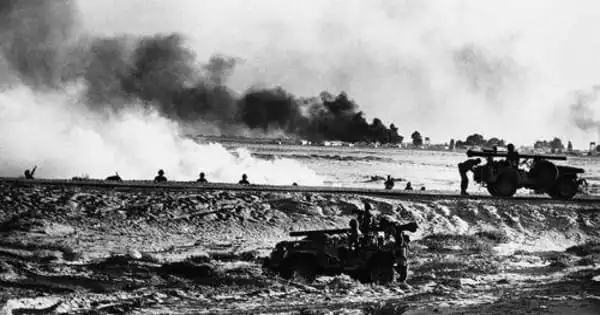A war is only just if it is fought for a reason that is both justified and morally significant. The country that wishes to use military force must show that there is a just cause for doing so. The primary just cause is to right a wrong. A war fought to prevent an injustice from occurring may be considered a just war.
We are not strangers to war, even if we have not had the misfortune of having to live through it. We are well exposed to the horrors of human crimes, sufferings, and destruction, whether in movies or real-life accounts of war experiences. Many believe that such depictions are usually sensationalized in order to attract an audience, but in my opinion, war can never be as cruel as it is depicted through third-person accounts. In fact, it’s even worse.
The enormous suffering caused by war is unimaginable. Innocent civilians are maimed or killed, while soldiers suffer irreversible physical and mental harm years later. A recent news article revealed that the effects of Agent Orange, which was used in the Vietnam War more than two decades ago, are still felt today by young children with enormous heads swollen from the gas inhalation. The kind of devastation that soldiers enraged by blood lust inflicted on the people during the infamous Nanjing Massacre demonstrate how much suffering is unleashed during wars. So, how can war be justified?
For centuries, philosophers have been perplexed by war, and it’s easy to see why. What could be more intuitive or ethical than the belief that mass killing is morally wrong?
Furthermore, when there is a war, everything around us suffers. The Gulf War may have liberated Kuwait from Iraq’s invasion, but the environmental and economic damage it caused took months to heal. When the Iraqis set fire to the oilfields in an attempt to make it difficult for the Allied forces to maneuver safely, they unintentionally created one of the worst ecological disasters of the century. Thousands of animals died as a result of the pollution of their habitats, and the air remained black and foul for months afterward. Kuwait had to rebuild its economy from the ground up. It was once a prosperous country that could barely support its people.
There are no winners in a war. So, how can it be justified when it does nothing but condone violence in attempting to solve problems? The amount of resources and lives lost by both sides does not persuade anyone that war is good. During the World Wars, both the victorious and the defeated spent years trying to recover from the devastation. This could have been avoided if other peaceful means of resolving the problem had been used instead of allowing it to escalate to the point where nothing but a war would suffice.
The only reason to go to war is to defend one’s liberty. The right to freedom is the most fundamental human right. If that is taken away from any of us, everything else pales in comparison. When one is enslaved by the tyranny of another country, the primal desire to free oneself and survive is understandable. Only in such cases, when a person is truly threatened, should war be considered.
But what is the cost of liberty if so much is lost in the process? Similarly, what is life if one must live in shame and slavery? Unfortunately, this is a Gordian knot that has yet to be untied in modern life.
The nature of war is rapidly changing, and ethics must adapt to keep up. These specific principles may require revision. However, we should not believe that the fundamental ethical issues have changed. In some ways, war is still inherently unethical. Significant ethical reasons are required to be justified, and although imperfect, Just War theory remains one way to seek such reasons.
















